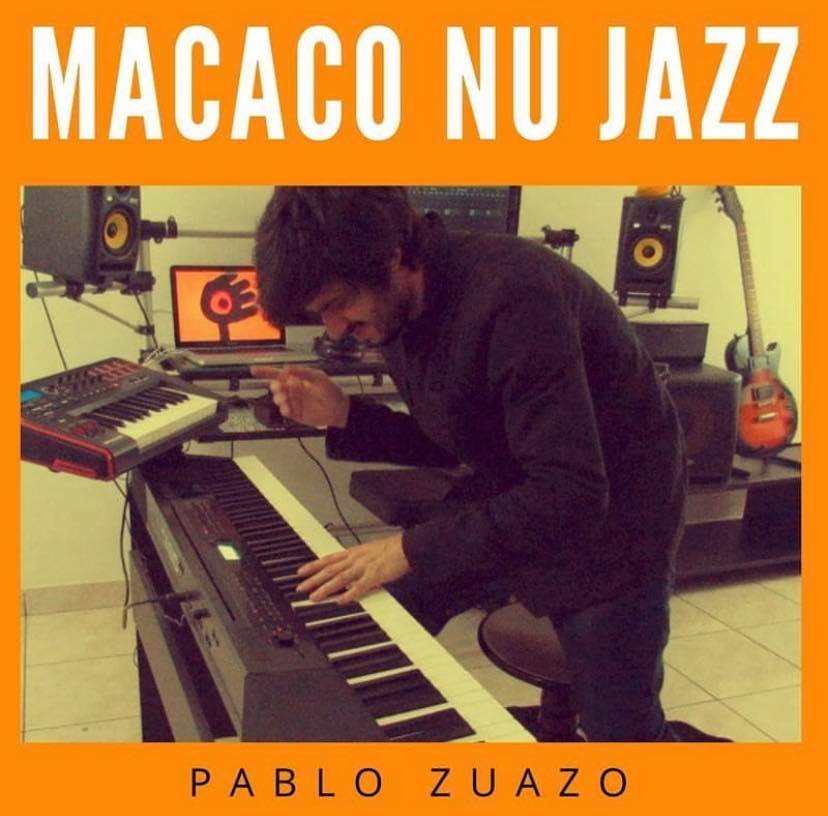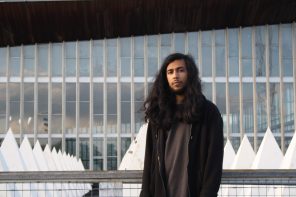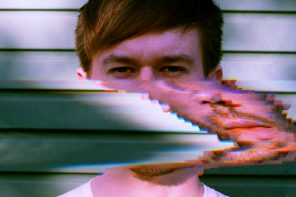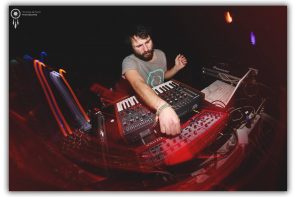Tell us a little about yourself and how you got into music?
I was born into a very musical family. So I breathe and live music since I was born. My father is a poet and guitarist. My mother is a singer. But they were not professionals as musicians. My father taught me how to play the guitar when I was 8 years old. A few years later I started to study piano. At age 13, I got a computer and started producing my first beats using MIDI technology with my keyboards. I started singing at about 16 because of an expressive artistic need. My mother taught me my first singing techniques and then I specialized in listening to Frank Sinatra, Nat King Cole, Roberto Carlos among many others.
I was born in the State of Maranhão (northeastern Brazil – a place known as the reggae capital in Brazil) and spent much of my childhood in Rondônia (Amazon Forest region because my father is an Indian). When I turned 16, I moved to São Paulo and started playing the piano professionally. I started playing Samba, because it was the style most played on Brazilian radio at the time. Playing Samba in São Paulo was a great school. That’s where I learned to make art pure and sincere, with love and joy. It was my university as an artist. Today I carry the samba in my heart and it is a style that is part of my history as a musician.
What are your influences? Do you have any non-musical influences on your music?
As a pianist my main influences are jazz and bossa nova. My father was a fan of Antônio Carlos Jobim and Nat King Cole. So I’ve always listened to these two since I was born. Then I met Herbie Hancock in my teens through the US3 jazz band rap. I listened to the classic Flip Fantasia (Cantaloop) on MTV daily. In this song they sampled the “Cantaloup Island” riff from Herbie Hancock.
Through Herbie Hancock I immersed myself in jazz and met my other great influences on the piano: Michel Petrucciani, Oscar Peterson and Horace Silver. After so many years, I now realize the great influence of them in my training as a jazz pianist. I learned to play their music note by note. I bought transcription books or learned the songs by ear. Finally, John Medeski and his group Medeski, Martin and Wood are other great influencers of my work. The first 10 albums of MMW I’ve heard millions of times in last 10 years. I love their work. John Medeski is also a great idol to me.
As a singer my influences are the singers of Seresta (old Brazilian style of romantic music) that my father listened to when I was a child. Nelson Gonçalves, Orlando Silva, Lúcio Alves, Agostinho dos Santos are my big influencers. My family loved Frank Sinatra and Nat King Cole very much. I started to like them a lot too and started to imitate them. Then I learned to sing like them. As a composer my main influences are Caetano Veloso, Gilberto Gil and Antonio Carlos Jobim, as well as musicians are incredible poets. I love poetry and I am also a poet.
And finally, I was a teenager of the MTV generation. So I heard a lot of old school hip hop. Today I am producer of beats whose influence of the US3 is very notorious. I love these guys, because they mix hip hop and jazz. I just put one more sauce, because I also put samba and Brazilian music. In hip hop my influences are US3, Eminem, Notorious Big and A Tribe Called Quest. Poets and writers are my non-musical influences. Fernando Pessoa, Charles Bukowski, Vinicius de Moraes and Paulo Coelho are my idols of poetry and literature and inspire me a lot in the music that I do.
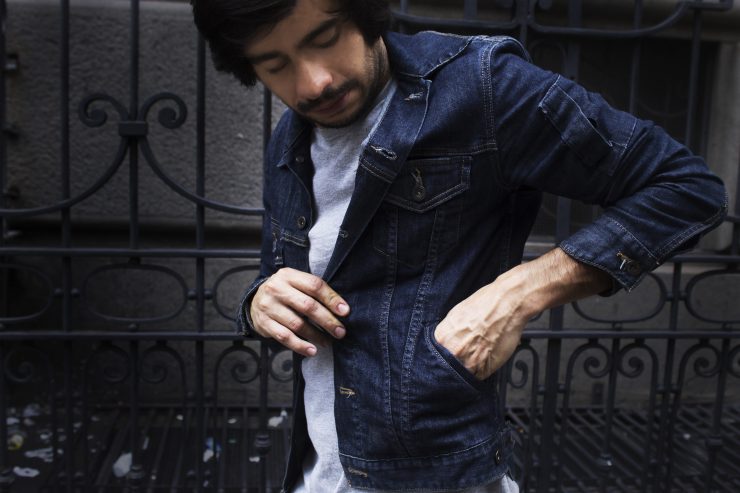
How would you describe your style of music?
I consider myself a musician of new urban jazz (nu jazz). I walk on the boundaries between jazz, electronic music and Brazilian music. I believe that contemporary jazz is more urban and has a lot of influence from hip hop and electronic music, which are very much heard in the big cities of the world. I have lived in Sao Paulo for many years and am a very urban guy. And that ends up influencing my music. And I’m also Brazilian, I started my career in samba, and I heard a lot of Brazilian music. So my song also has this Brazilian side. Maybe my style is “Brazilian nu jazz” (smiles haha).
What aspects of Lost In Sound made you feel like we were a good place to represent your particular sound?
First of all, Lost in Sound is the best music-culture community from the internet. It is a reference in quality musical content, because Lost in Sound always presents us artists, events, festivals, reports, interviews and videos with its gonzo journalism full of quality and responsibility.
It is clear that the magazine is made by people who love music. And I’m sure all the people who love music will always enjoy the magazine. Thank you Lost in Sound for contributing to the music and art of the world. I feel extremely honored and happy to have been chosen for this interview.
How long did it take you to make this track?
I made the track in about 3 weeks. I had the inspiration after reading the book “The Naked Ape” by Desmond Morris. This book title in Portuguese is “Macaco Nu” . So, I decided to put that portuguese title in the song. And considering that “Nu Jazz” is the style I printed on the track, the name “Macaco Nu Jazz” has a double meaning in Portuguese, since it refers to both the musical genre (nu jazz) and to the book title in portuguese. The book describes the human species through an ethnological perspective, which is generally adopted to describe the behavior of other animal species. He analyzes the human as an animal. The book was so named because out of 193 species of monkeys and apes, only humans (Homo sapiens sapiens) are not covered in hair.
Since today we live in an extremely urbanized world, I thought of creating a song that had a wild animal energy and also something urban. That’s why the song has a more melodic “A” and a wilder, more animal “B”. In 3 weeks I was able to compose, produce, record and mix the track. It was an incredible journey. I am very grateful to Desmond Morris for inspiring me on this track.
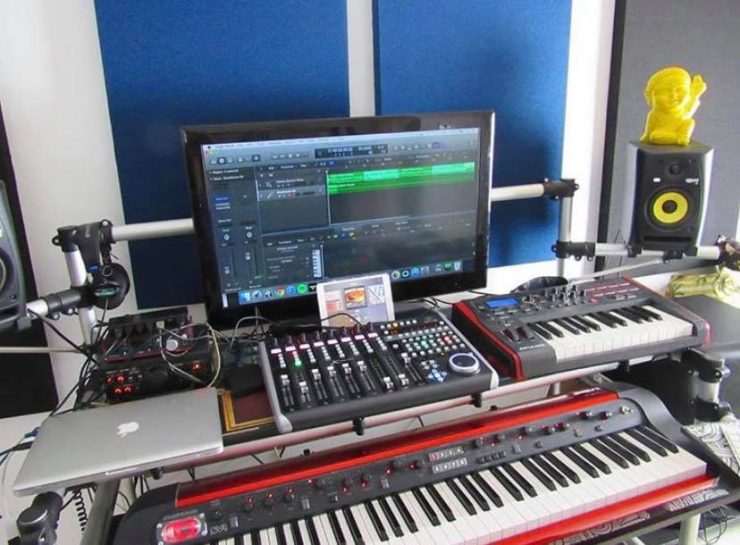 What tools, instruments, software, hardware, did you use to compose this track?
What tools, instruments, software, hardware, did you use to compose this track?
I used a Rhodes (electric piano) with some effects of fuzz, overdrive and distortion, which was influenced by the jazz-fusion period of Herbie Hancock and also by John Medeski. I recorded in my own home studio using Logic Pro X with an Apollo Twin Duo Mkii interface from Universal Audio. I also recorded the guitars and some vocal effects. I also used some loops and samples to give the mood and texture I needed. I’m a paying subscriber to Splice.com, so there’s my library of loops and samples. I mixed the track in Logic Pro X itself and the mastering I did through the LANDR website.
What activity do you imagine people doing while listening to your music?
Smoking or drinking. Training in the gym. Walking on the streets of a city with the headset.
Studying or working with background chill music. During electronic or Hip Hop parties.
In jazz clubs, and in the comfort of their homes.
Where can people find you performing live?
I usually play in São Paulo and other cities in Brazil, in concert houses or jazz clubs. This year I intend to do international shows and I would like to play in Europe, the United States and Japan. My live show is accompanied by a jazz band, a hip hop DJ and a Brazilian music percussionist. It’s a mix of jazz, electronic music, hip hop and Brazilian music. I play piano, synthesizer and also singing.
What is next for you after this track/album?
Now I’m finishing the recording of an album as a singer and songwriter, because although I do instrumental music like “Macaco Nu Jazz”, I also love romantic songs. Poetry is something very important and present in my life because I am a poet and musician. So on this album I want to show my songs of love and peace to the world. I also plan to do a short tour of Europe or the United States and, maybe, Japan. I would like to show my music and my art to the world, with all the energy of the live performance. Playing in NY is my biggest dream because New York is the jazz world capital.
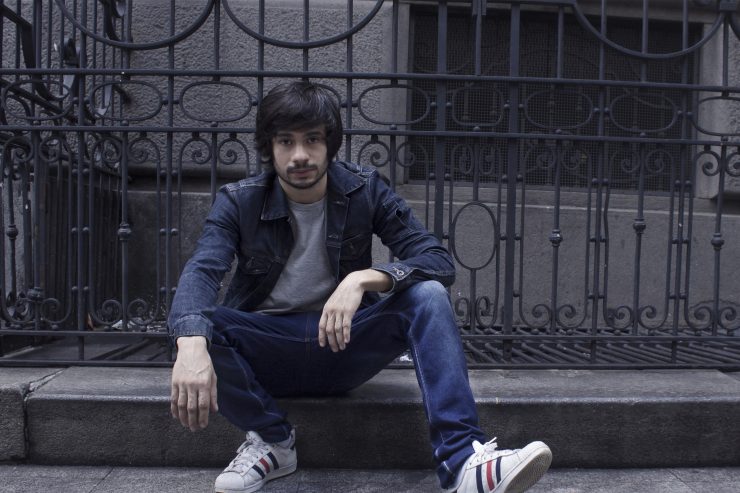
Is there anything else you’d like us to know about this track, you, or your music in general?
Yes. Although I make modern and contemporary music, I look for my inspirations in old songs. As I mentioned above, my influences are all from old artists, most are no longer alive, unfortunately. So I think I’m in this world to continue the work of all my masters. To spread with the world a song full of love, with the artistic truth and quality of the great masters who are gone.
The gear of human life on earth continues to spin and I intend to continue with the baton that used to be Antonio Carlos Jobim and Nat King Cole. It’s like a baton run, and music is the baton that you pass on to the next generation of humanity. Good music, the music of the soul and heart, needs to be carried forward. Music is not money, music is not success, music is not celebrity. Music is love, music requires that you dedicate your life to it. And I dedicate my whole life to music, to become the best possible for my audience and not to drop the bat that the masters passed through me.

